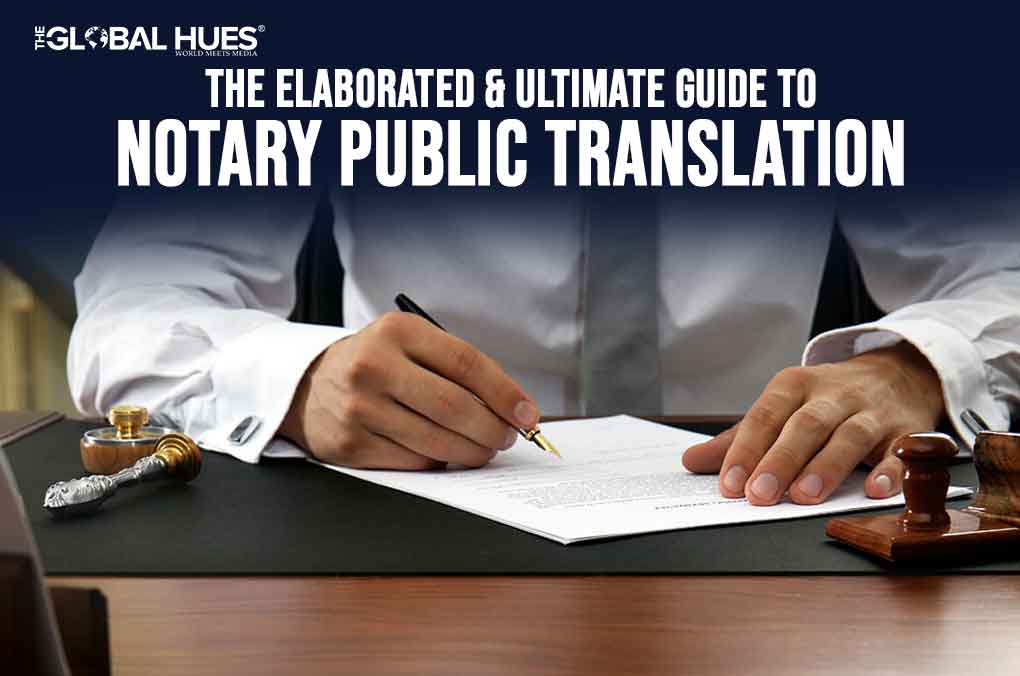Do you know how to proceed after being requested to notarize a translated document? Have you completed a certified translation but are unsure if it has to be notarized? You’ve arrived at the proper location.
This article will describe how to notarize a translated document and address some often-asked issues about the procedure. Let’s first examine the fundamentals of notarization, though.
What exactly is notary public translation?
A notary public translation Singapore is a qualified witness who attests to a document’s validity. Notaries are government employees who are designated by state governments to administer oaths and witness the signing of papers in Singapore.
Notarized Document
When a document is notarized, the notary public produces a notarial certificate. This contains the notary’s signature, official seal, and a description of the document they are notarizing. This certificate serves as the notary’s proof of any specific notarial act.
What forms of paperwork require notarization?
Rather than the document itself, whether your document has to be notarized will depend on the institution to which you are submitting it, the following records may need to be notarized:
- Passport requests
- Court records (in some states)
- Transcripts from schools and foreign degrees
- Resumes Employment agreements
- Loan contracts
- Constitutional documents
- Banking records
- Important documents (such as birth, marriage & divorce certificates)
When submitting papers issued in Singapore to another country abroad, a notarized translation may also be necessary.
Who can do Notary Public Translation?
States have different laws governing notaries. As previously indicated, a state government appoints notaries public. Among others, this may be the governor, the state secretary, or the state legislature.
You must be at least 18 years old, reside in the state where you apply, or have a job there to become a notary public, regardless of your state of residence. Candidates for notary public positions might additionally need to finish a course and/or pass an exam. Once all criteria have been met, notaries must also file the bond, take the oath of office, and purchase the necessary notary supplies. The specifications for each state differ.
Even though notaries are chosen at the state level, notarized translations are not exclusive to that state. A notarization conducted lawfully in one state is valid in all other states due to the well-established interstate recognition of notarial actions.
Why is notarial attestation crucial?
Notarization is significant since it aids in identifying and preventing document fraud. Thus, notarization aids in safeguarding the property and personal rights of the people.
Many papers are thus invalid without being notarized. Therefore, you should be careful to inquire about the precise criteria before submitting your documents and locate a Notary Public who has been properly commissioned.
Can a Notary Public notarize and certify a translation at the same time?
Naturally, Notaries have the authority to produce and certify translations provided they meet the requirements. They are unable to notarize their translation, nevertheless.
Therefore, they have two options: either they decide to provide a certified translation of the document and delegate the notarization to someone else, or they ask someone else to handle the certified translation and do the notarization on their behalf.
However, if you want both services, a translation agency may provide certified and notarized translation services, which may make your life simpler.
What distinguishes notarized translations from certified translations?
As previously indicated, a certified translation is notarized by a Notary Public. What distinguishes notarized translations from certified translations, then? The involvement of a Notary Public is a quick response.
When you order a certified translation, the translator or translation company includes a signed declaration attesting to having translated the source document completely and accurately. The phrase “Certificate of Translation Accuracy” is another name for this declaration. This implies that a certified translation attests to the translation’s quality.
In contrast, a notarized translation requires that a Notary Public attest to the signer’s identity and see them sign the Certificate of Translation Accuracy. The Notary then adds their official seal to the Certificate of Translation Accuracy and signs it.
You can require simply a certified translation or both a certified and a notarized translation, depending on the institution making the request.
Additionally, you might need to have your translation apostilled if you are submitting it outside of Singapore. The Office of the Secretary of State of the state in which the Notary Public was appointed issues apostilles, which are documents that validate the Notary’s seal and signature.
Conclusion
To submit specific official papers, notary public translation Singapore services are quite crucial. If you need a notary public translation service right now, for accurate and certified document translation, engage affordable and expert translators at Wordsburg Translations.




